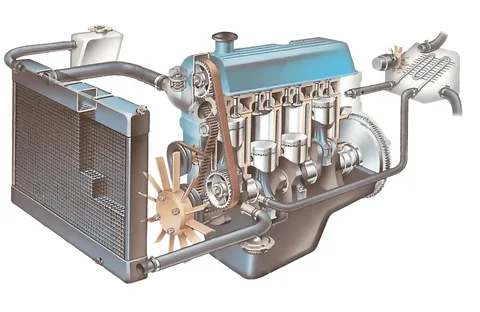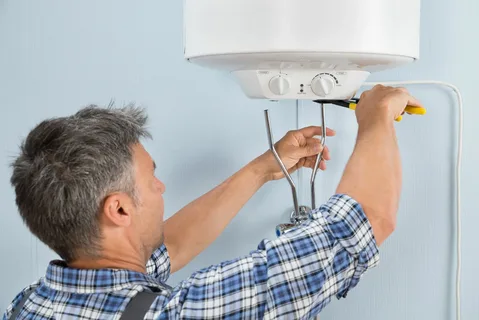Air conditioners play a pivotal role in climate control. And at the core of these cooling systems lies a vital component – the air conditioner compressor. Modern cooling systems have undergone a significant transformation, with compressors at the forefront of efficiency enhancements. This article delves into the heart of these contemporary cooling systems, exploring the technology that powers them and their remarkable efficiency strides.
The Compressor’s Crucial Role
The compressor serves as the beating heart of an air conditioning system. Its primary function is to circulate refrigerant, creating a cycle of compression and expansion that absorbs and releases heat, ultimately cooling the air within a space. The air conditioner compressor comes in various types, with the most common reciprocating, rotary, and scroll compressors. Each type has its unique features and applications, contributing to the system’s overall efficiency.
Innovations in Compressor Technology
Advancements in compressor technology have led to a substantial reduction in energy consumption. Variable-speed compressors, for instance, adjust their speed according to the cooling demand, resulting in significant energy savings. These smart compressors continuously adapt to changing conditions, maintaining optimal comfort while minimizing power usage.
Inverter Technology
One notable innovation in compressor technology is the integration of inverter technology. Inverter-driven compressors can modulate their speed and capacity, fine-tuning the cooling process to match the specific requirements of a space. This precise control not only enhances efficiency but also extends the lifespan of the compressor.
Enhanced Materials and Design
Enhanced materials and innovative design principles have revolutionized the construction of modern compressors. The incorporation of high-quality materials not only enhances durability but also minimizes wear and tear, ensuring a longer operational life. These compressors boast ingenious designs that optimize heat transfer and refrigerant flow, further elevating their efficiency. Through these refinements, contemporary cooling systems are empowered to deliver consistent, energy-efficient performance, all while contributing to a greener and more sustainable approach to climate control.
Reduced Noise Levels
Noise pollution from air conditioning systems has long been a concern. Contemporary compressors are designed with noise reduction in mind. Sound-dampening technologies and quieter operation ensure that cooling systems run discreetly, allowing occupants to enjoy a peaceful environment.
Environmental Considerations
Efficiency isn’t just about saving energy; it’s also about reducing the environmental footprint. Environmentally-friendly refrigerants are now a standard feature in modern compressors. These refrigerants have lower global warming potential, minimizing the system’s impact on climate change.
Efficiency Benefits
Efficiency benefits extend far beyond financial savings and environmental responsibility. An efficiently operating compressor for residential users means enhanced comfort with consistent cooling, reducing discomfort during scorching summers. Commercial users reap productivity gains due to a more comfortable working environment, boosting employee morale and performance. Furthermore, reduced energy consumption decreases the strain on power grids, enhancing overall grid reliability and reducing the risk of power outages. These multifaceted advantages underscore the paramount importance of efficient compressors in modern cooling systems.
Selecting the Right Compressor
When choosing a cooling system, it’s essential to consider the type of compressor that best suits your needs. Rotary compressors are often an excellent choice for smaller spaces due to their compact size and efficient operation. For larger areas or applications with varying cooling demands, variable-speed compressors with inverter technology shine in terms of energy efficiency and performance. Additionally, it’s worth noting that the choice of compressor can significantly impact the overall cost-effectiveness of your cooling system over its lifespan, making it a crucial decision in ensuring long-term comfort and efficiency in your space.
Maintenance and Longevity
Maintenance and longevity go hand in hand regarding efficient compressors and cooling systems. Beyond cost savings, efficient compressors contribute significantly to the extended lifespan of the entire cooling system. Routine maintenance practices, such as thorough coil cleaning and meticulous monitoring of refrigerant levels, are essential. They safeguard the compressor’s optimal function and prevent potential problems from escalating into costly repairs. Engaging a skilled technician for regular servicing ensures early detection and prompt resolution of issues, reinforcing the reliability and durability of your cooling system.
Conclusion
Modern cooling systems have redefined efficiency through advancements in compressor technology. These vital components, whether reciprocating, rotary, or scroll, are now designed for optimal performance, reduced noise, and environmental responsibility. Integrating inverter technology, enhanced materials, and eco-friendly refrigerants has ushered in an era of cooling that keeps people comfortable and reduces their energy consumption and environmental impact. When selecting a cooling system, consider the type of compressor that aligns with your specific needs, and remember that regular maintenance is critical to ensuring the longevity of your efficient cooling system. As people prioritize efficiency in cooling, they can look forward to a cooler and greener future.





